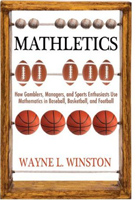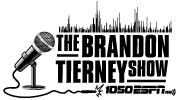Lawrence B. Pedowitz, a partner at the law firm of Wachtell, Lipton, Rosen & Katz, is the former chief of the criminal division in the U.S. Attorney’s Office for the Southern District of New York. In August 2007, Pedowitz was selected by the NBA to head the review of the league’s officiating program. With the assistance of a research team from his law firm, he conducted more than 200 interviews with referees and team and NBA personnel over 14 months. The 116-page assessment, which also included reviews of several game tapes, was submitted to the NBA on October 1, 2008, and released to the press the following day. The so-called “The Pedowitz Report” examines numerous aspects of officiating and (often arcane) NBA policy. Its key findings regarding the referee betting scandal focus on two preeminent issues: whether other referees were involved and whether the outcomes of games were influenced by Donaghy and/or other officials. On these matters of primacy, the report respectively (pp.39, 7) states:
We have discovered no information suggesting that any NBA referee other than Tim Donaghy has bet on NBA games or leaked confidential NBA information to gamblers…Donaghy has denied intentionally making calls designed to manipulate games, and the government has said that it found “no evidence that Donaghy ever intentionally made a particular ruling during a game in order to increase the likelihood that his gambling pick would be correct.” Based on our review, and with the information we have available, we are unable to contradict the government’s conclusion.Observers almost universally and uncritically accepted the report’s conclusions, as can be inferred from the following sample of headlines covering the report’s release: “Donaghy Report Clears Other Refs”(Washington Post), “Probe: No evidence of other referees’ misconduct” (USA Today) , “Report confirms Donaghy was the only corrupt referee, clears NBA” (Philadelphia Daily News), “Review of NBA officials finds Donaghy only culprit”( ESPN.com), “NBA referees are cleared; Report: Only Donaghy guilty” (Boston Globe), and “Report: Donaghy fixed games alone” (Newsday). In short, by November 2008 - with Donaghy in prison and the NBA’s review completed - what has infamously become known as the NBA betting scandal was over. Or so it seems.
Tim Donaghy’s co-conspirators in the scheme were 42 year-old James “Jimmy” Battista, a professional gambler, and 41 year-old Thomas “Tommy” Martino, a mutual friend who served as the intermediary between Donaghy and Battista. Battista, who pleaded guilty to conspiracy to transmit wagering information, received a sentence of 15 months in federal prison. Martino pleaded guilty to conspiracy to commit wire fraud and received a sentence of 12 months. Just a week before Donaghy reported to prison camp in September 2008, gambler Battista began serving his sentence at the federal detention center in Brooklyn, New York. Unlike the media blitz that announced Donaghy’s first day of incarceration, Battista’s introduction to prison life was virtually ignored.
Only two people know the intricate details of how the NBA betting scheme was conceived, how it worked, its duration, and so on – referee Donaghy and gambler Battista. On the most consequential matter, Donaghy insists he did not influence games, and this is difficult for third parties to assess merely by reviewing game tapes. Furthermore, the referee had no knowledge of how much money was being wagered based on information he provided to Battista, how it was being placed, by whom, where and why. Thus, even though it seems as though the NBA scandal was examined by the league and numerous media observers, there is quite a lot that is not publicly known. In fact, the Pedowitz Report (p.19) notes, “Despite our repeated requests, Donaghy has declined to speak with us. The government also has declined to share any non-public information from its investigation with us.” Combined with Battista’s refusal to speak with its researchers, the Pedowitz group was confined to reviewing the public record, namely court filings. This critical weakness doomed the Pedowitz Report from being anything other than a rather superficial synopsis of court activity and kept it far from being an incisive look into the scandal. For this, they would have needed access to the scandal’s architect, pro gambler Battista.
Jimmy Battista is the lone individual who can answer numerous vital questions, including whether or not there is evidence Donaghy influenced games and whether he was the lone referee involved in the scandal. Battista can also explain how and why he (and others) were able to bet on Donaghy’s games for a significant period of time without being detected by sports books, various authorities, or the NBA. Though he pleaded guilty, Battista refused to cooperate with authorities. He has yet to share his insights into the scandal, including - and especially - how he came to orchestrate the scheme in the first place.






























